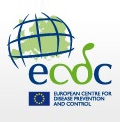 Marc Sprenger, Director of the European Centre for Disease Prevention and Control (ECDC), used his address to the annual Eurovaccine conference to issue a stark warning that Europe is facing an uphill battle against measles.
Marc Sprenger, Director of the European Centre for Disease Prevention and Control (ECDC), used his address to the annual Eurovaccine conference to issue a stark warning that Europe is facing an uphill battle against measles.
While a handful of cases have hit the headlines in the US, Canada, Australia and New Zealand, France has recorded 14,000 cases so far in 2011 with thousands more reported across Europe.
Children are not the only ones affected. In fact more than half of France’s cases have been in people aged above 15 years.
Read: Measles eradication targets under threat amid epidemics
“To reach elimination, we need vaccination coverage of 95% of the population, with two doses of the MMR vaccine. Outbreaks of measles across Europe in recent years are a sign that immunisation programmes are not reaching all children,” Sprenger told the conference.
Herein lies the challenge: the majority of European children are vaccinated but the target for measles immunisation is 95% because heard immunity is so important to wiping out the disease. This means that even if a small minority are not immunised the virus can spread quickly through communities.
“It is sometimes difficult to connect to the vulnerable, so-called ‘hard-to-reach populations’. But an even greater reason for unvaccinated children in Europe is that parents today are sometimes more worried about adverse effects than the disease itself,” said the ECDC chief.
He said routine childhood vaccination systems need to be reinforced for very young children and that European countries will need to run catch-up campaigns targeted at children and young adults that missed out on vaccination in the past.
Sprenger said effective communication is important to reinforce the trust of parents in vaccination and urged paediatricians, family doctors and nurses to get on board the Europe-wide fight against measles.
Read: Are doctors doing enough to support MMR?
“Doctors need to be convinced that vaccination of measles is a priority to avoid epidemics and eliminate measles. They need to provide parents with balanced and evidence-based information to help them make informed decisions regarding vaccination.”
He said the role of doctors and other frontline healthcare workers is paramount given that research has shown that health professionals are the people most trusted by parents. The ECDC will support health professionals with effective communication tools and expert advice, Sprenger added.
Read: Patients look to doctors for vaccination advice
Dr Darina O’Flanagan, Director of the Health Protection and Surveillance Centre in Ireland, told the conference that she had been inspired to specialise in public health after seeing a young boy die of a measles-related inflammation of the brain known as SSPE.
“At the time, the measles vaccine had not been introduced in Ireland and it was one of the motivating factors that made me decide to go into public health,” she said.
O’Flanagan suggested immunisation promotion campaigns should focus on highlighting the fact that most parents have their children vaccinated. The so-called “band-wagoning” effect could help bring vaccination rates closer to the target because “most parents do what other parents do”, she said.
Read: EU needs ‘extraordinary effort’ to contain measles
The conference also focused on the value of vaccination, with Prof David Salisbury, Director of Immunisation, National Health Service (NHS) in the UK, said vaccines can improve European countries’ “health and wealth”.
Paolo Bonanni, the Director of the University of Florence post-graduate course on Vaccines and Vaccination Strategies, suggested that health authorities should use different criteria for evaluating the cost-effectiveness of vaccines.
He said there are important differences between preventative and therapeutic interventions: “prevention is an investment.”
View posters from the Eurovaccine conference




